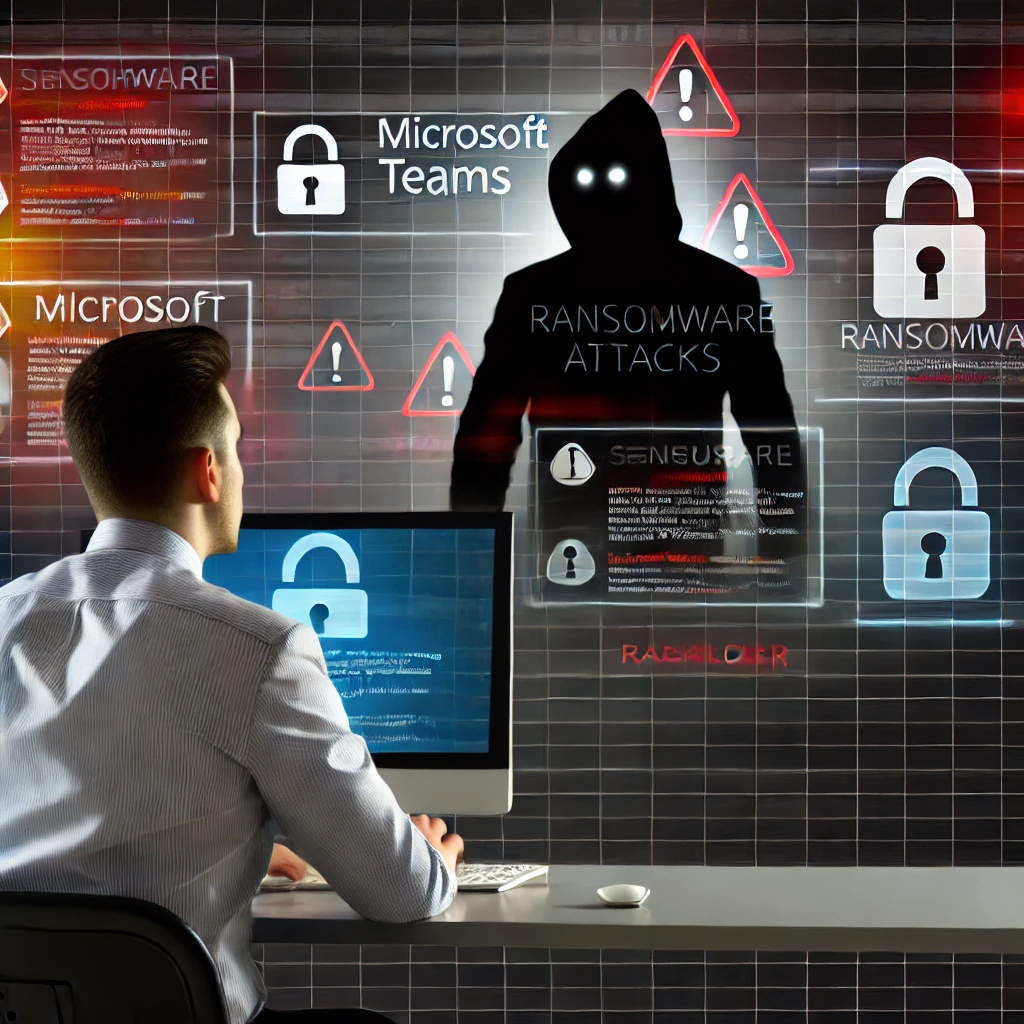
As you may have heard, ransomware threats have become increasingly prevalent, posing significant risks to organizations worldwide. One such notorious group is the Black Basta ransomware gang, known for their sophisticated tactics and relentless attacks. This article aims to educate organizations about the rising threat of ransomware attacks, particularly the tactics used by groups like Black Basta.
The Attack: A Story of Julia
Setting the Scene: Imagine Julia. A healthcare professional, who starts her typical Monday morning by checking her emails and preparing for the day ahead. Little does she know; her routine is about to be disrupted by a cunning cyberattack.
The Flood of Emails: Julia is bombarded with a series of account creation emails, causing confusion and concern. She wonders if her accounts have been compromised.
The Impersonation: Suddenly, Julia receives a message on Microsoft Teams from “James from IT Support,” claiming to help resolve the issue. Unbeknownst to her, James is an imposter, a member of the Black Basta ransomware group.
The Critical Decision: James instructs Julia to install AnyDesk, a remote access tool, to fix the problem. Julia hesitates, her cautious instinct urging her to verify the request. This moment of doubt could be the difference between security and a devastating breach.
How the Attack Works
The Black Basta attack involves several key tactics:
- Impersonation of IT Support: Attackers pose as legitimate IT support personnel to gain the victim’s trust.
- Use of Social Engineering Techniques: They exploit human psychology, using persuasive communication to manipulate victims into taking actions that compromise security.
- Role of Remote Access Tools: Tools like AnyDesk are used to gain unauthorized access to the victim’s system, allowing attackers to deploy ransomware and exfiltrate sensitive data
How to Prevent Such Attacks
Organizations can take several preventive measures to protect against ransomware attacks:
- Restrict External Teams Communications: Limit communication with external parties on platforms like Microsoft Teams to reduce the risk of impersonation.
- Employee Training on Phishing Awareness: Regularly train employees to recognize phishing attempts and suspicious communications.
- Monitoring for Suspicious Activity: Implement robust monitoring systems to detect and respond to unusual activities promptly.
- Verification of IT Requests: Encourage employees to verify IT support requests through official channels before taking any action
The Role of Managed Service Providers (MSPs)

Managed Service Providers (MSPs) play a crucial role in bolstering cybersecurity:
- Layered Security Solutions: MSPs provide comprehensive security solutions that include firewalls, antivirus software, and intrusion detection systems.
- Endpoint Monitoring and Access Management: They monitor endpoints for suspicious activity and manage access controls to prevent unauthorized access.
- Regular Training and Proactive Threat Detection: MSPs offer regular training sessions and employ advanced threat detection techniques to stay ahead of cyber threats.
Conclusion
The Black Basta ransomware attack serves as a cautionary tale, highlighting the importance of vigilance and proactive measures in preventing cyber threats. Organizations, especially in the healthcare sector, must adopt stringent security practices to safeguard against ransomware attacks. By restricting external communications, training employees, monitoring for suspicious activity, and leveraging the expertise of MSPs, organizations can significantly reduce their risk of falling victim to ransomware attacks.
How we can help:
CRES Technology ensures to keep your network and data protected so that you can feel secure and confident.

Many of our clients were in danger of becoming a victim to cyber security attacks. They needed an IT security to help prevent attacks from ever happening and help them recover if an attack did happen. That’s where CRES Cyber Security comes in.
With our extensive capabilities in cyber security and partnership with top cyber security software companies, we enable you to prevent cyber attacks, network exploitation, data breaches, phishing emails, and more. Our RMM audit assesses the health of your network and resources. We offer network penetration testing to prevent network exploitation, implement data loss prevention policies to prevent data breaches, and phishing email testing to teach your staff to identify phishing emails. CRES Technology implements state of the art Endpoint Detection & Response solutions, allowing your company to be able to recover from any kind of damage caused by cyber criminals.
About Waqar Hussain

CRES Technology – Director of IT Services
A technology leader with outstanding knowledge, technical expertise, and a proven track record of leading complex infrastructure projects and managing help desk teams.





